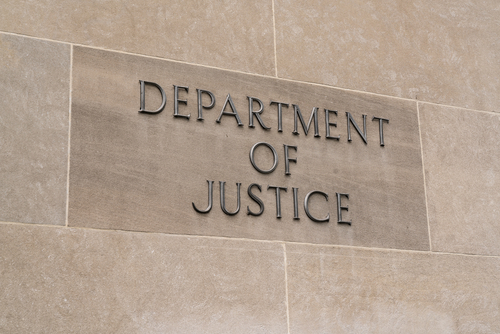
Border agent faces termination for exposing child trafficking crisis
Listen To Story Above
Border Patrol Agent Zachary Apotheker is facing an internal investigation that could potentially lead to his termination after publicly voicing concerns about how open-border policies are contributing to the illegal child trafficking crisis in the United States.
Apotheker, who began his career at the southern border before transferring to the northern border’s Swanton Sector last year, claims that Customs and Border Protection has retaliated against him for sharing his concerns during podcast appearances and media interviews, despite whistleblower protection laws.
James O’Keefe’s interview w/a Border Patrol agent 4 his movie was so powerful that the agent decided 2 become a whistleblower. The DHS has now issued the agent a cease; now, 5 more border agents have decided 2 blow the whistle on the DHS.
H/T @KamVTV
— Lioness Deb (@LionessDeb19) September 25, 2024
One of Apotheker’s primary concerns is the alarming increase in child trafficking. He highlighted the Border Patrol’s limited ability to investigate the criminal backgrounds of foreign nationals crossing the border, stating, “We don’t have their criminal history. The adults may not show up with documents, but then the children may not show up with documents, or maybe false documents. So we’re just taking their word that this child is now this person’s child — that’s their biological parents.”
After appearing on the “Fresh&Fit Podcast” in early September, where he discussed how individuals who enter the country without proper documentation exploit current border policies to traffic humans and drugs into the United States, Apotheker received a cease-and-desist letter from Customs and Border Protection.
Around the same time, he was featured in James O’Keefe’s documentary, “Line in the Sand,” where he spoke about child trafficking and referenced the tragic murder of Laken Riley, a University of Georgia nursing student. Apotheker told O’Keefe, “When a girl like Laken Riley is jogging, she’s top of her class at nursing, and we sign those files, man, that’s blood on our hands.”
Following his appearance in the documentary, CBP questioned Apotheker, who responded by stating that he participated in the film while on duty in uniform, as did many other Border Patrol Agents. He emphasized that he provided no confidential CBP information and only shared publicly available information.
Apotheker was subsequently stripped of his government-issued firearm and taken out of the field. He received a memo informing him that he was under investigation for “allegations related to serious breaches of integrity and/or security policies.” The agency claimed that the firearm revocation was “not a disciplinary action.”
Shortly after, Apotheker was compelled to testify before a Department of Homeland Security special agent regarding his “general misconduct/disruptive behavior.” On the advice of his legal counsel, he chose not to answer any questions during the hearing.
Following the hearing, Apotheker’s law enforcement authority was revoked, citing his failure to respond to questions during the administrative interview. He was required to surrender his Border Patrol gear, including his badge, body armor, and radio.
Apotheker believes the agency’s actions are retaliatory, despite their claims to the contrary. He reports that his work schedule was changed, his hours were significantly reduced, and his pay was cut by $25,000-$35,000 due to these changes.
Despite the challenges he faces, Apotheker remains committed to speaking out about the issues he has witnessed at the border. He believes that the public needs to be aware of the ongoing problems and hopes that by bringing attention to these issues, positive changes can be made to address the child trafficking crisis and improve border security.




